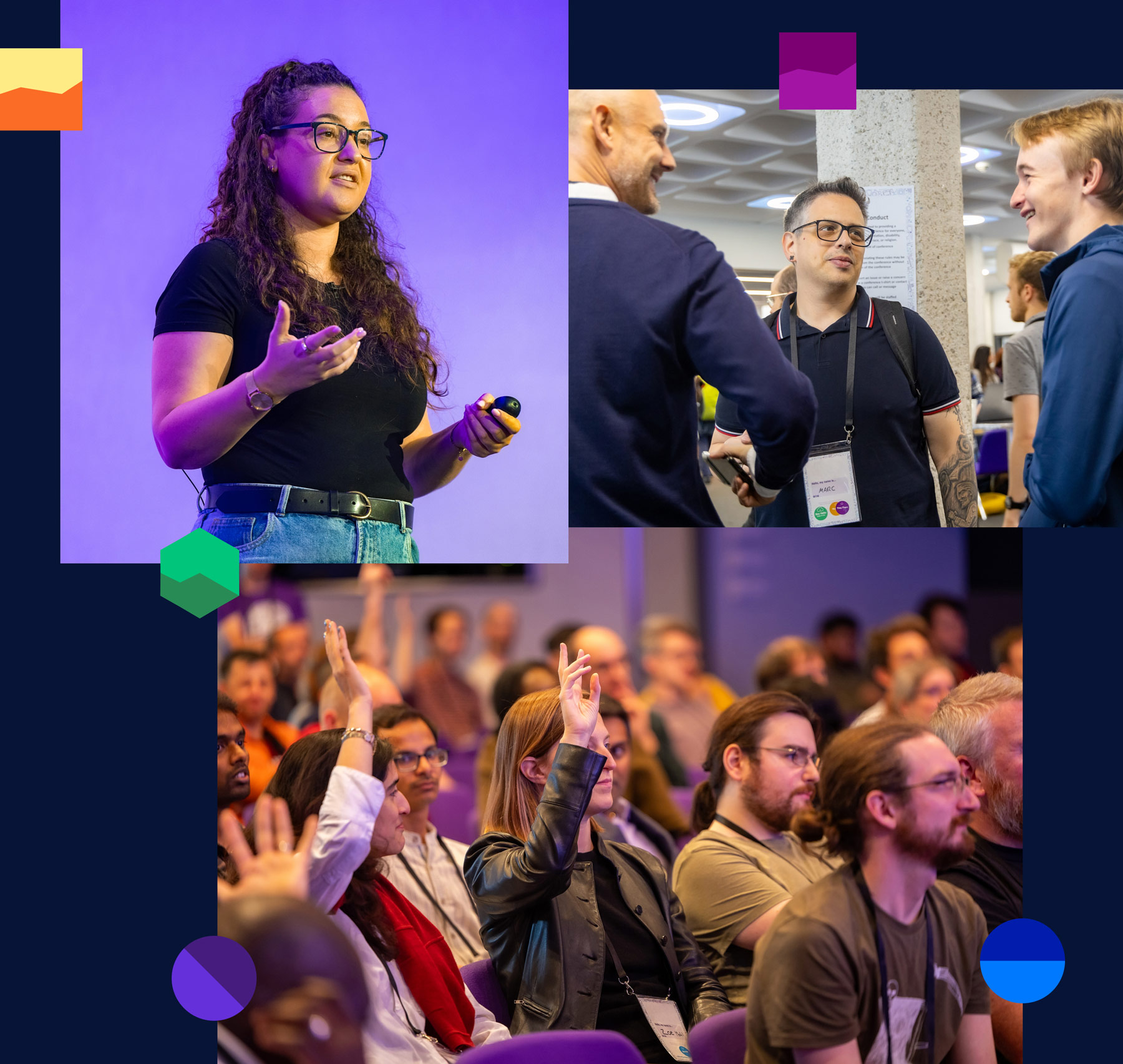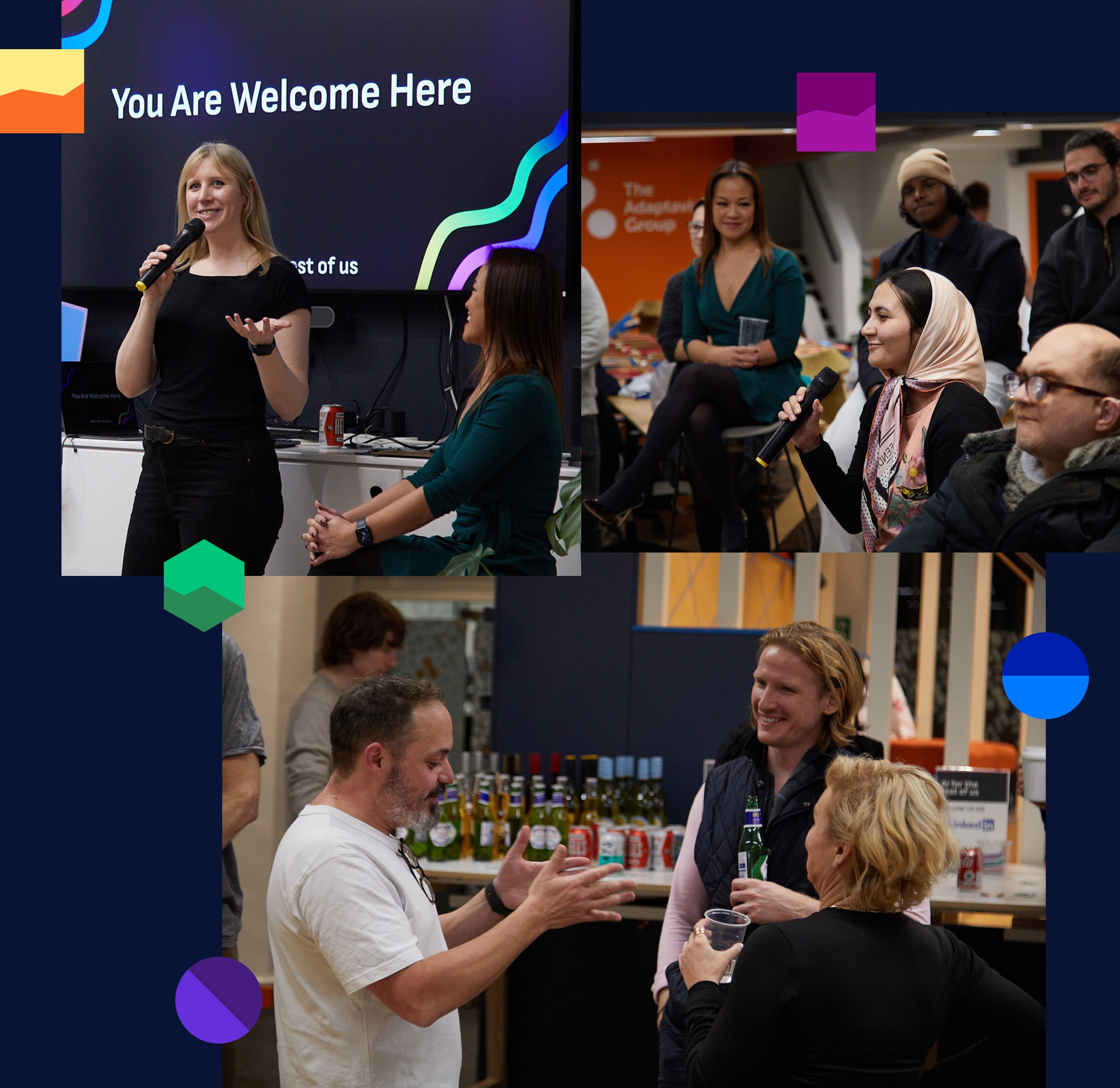|
The AI community for everyone.
No jargon. No hype. No confusing terminology.
We provide an AI learning experience like no other through our fun, inclusive and accessible community and events.
The Essential AI Learning Experience

- AI fluency has become a core skill
- We need to have better conversations about AI, today
- It's hard to get started with so much noise and jargon
AI is ready for everyone. No matter who you are. No matter what your role. AI is ready for you, we’ll make sure you're ready for AI
- Our opinions of AI need to be grounded in reality
- We need to work together, but we can't do that until we speak the same language
- There is pressure at work to get more from AI but we need to figure out how



Join the Community
Monthly Meetups in Central London. A warm and welcoming community, learning about AI together.
Join the CommunityMeet Our Founder

Hannah Foxwell
Creator and Curator
"In Spring 2024 I attended the AI track at a tech conference. It was a humbling experience. I was trying to keep up with the talk whilst also furiously searching for definitions of new words and concepts as they were introduced. I resolved to invest time in my AI literacy - I knew I needed to speak the language of AI but where to start?
I came up short. I found marketing content and technical content but there was a real shortage of simple, practical, educational resources. So I decided to create it!"
See *your name* here!
Showcase your products and services to a highly engaged audience of decision makers, leaders and influencers.
We give them the knowledge they need to take the lead with AI, you help them execute.